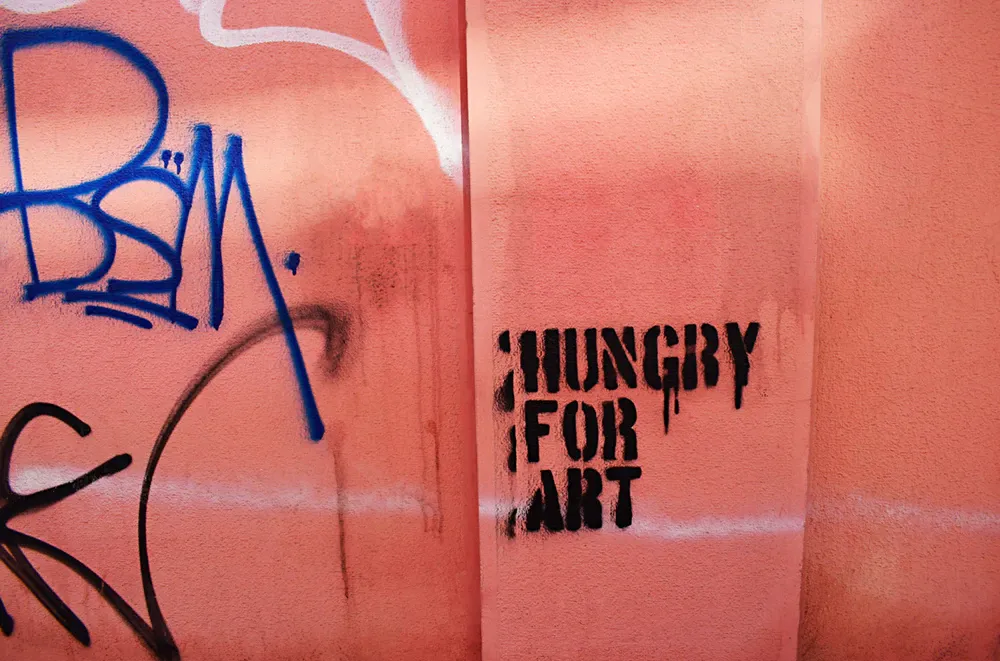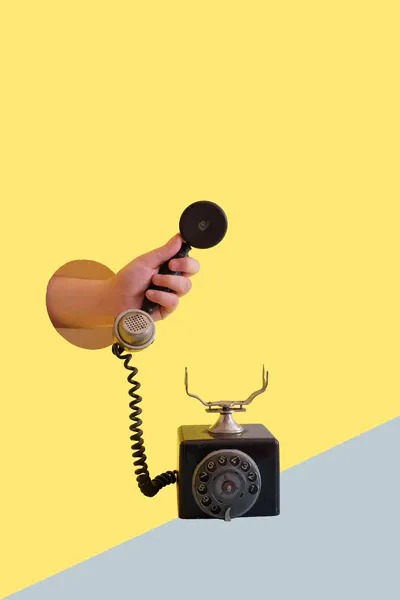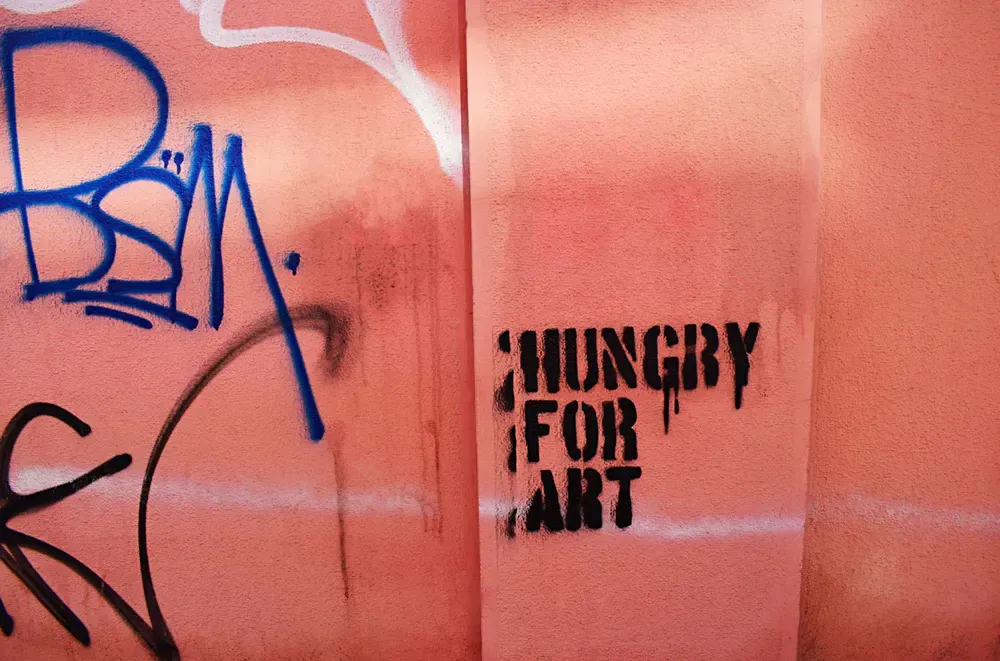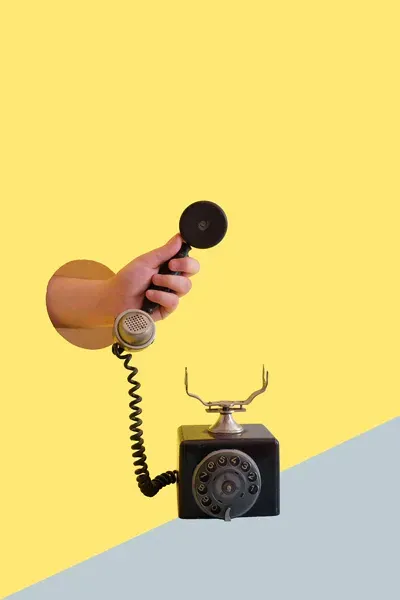Ins and outs of asking for money

Grants. Love them or hate them, there’s no denying that they’re a major part of how the world works in the creative sector. There wouldn’t be much of an arts community without the steady stream of grants from the government, NGO and philanthropic sector..
Since getting a grant can make a huge difference to your practice and future as an artist, I thought I’d get some advice on how to get one, so I talked to Judene Edgar. Judene’s been in the fundraising world for more than 20 years. Not only has she applied for (and secured) loads of grants, she’s also spent lots of time on the other side of the transaction, reviewing grant applications and making decisions about who gets funded. Now, she runs a consulting firm where she helps clients put together winning grant applications.
Here are Judene’s tips for asking for money through the grant application process.
Don’t talk gibberish
This is actually a great tip for any writing, grant applications included. To write a great grant application you need to have a good understanding of who’s going to be reading it. What’s important to them? What’s their background? What is their existing level of knowledge?
If you don’t do this, you run the risk of falling into a common trap Judene sees: when people get “caught up in their own jargon.” Every sector, organisation and even family have certain words and terms that are unique to the people within it. This terminology can sound like gibberish to people outside of that group. So when you’re writing a grant application, ask yourself if it would be understandable to someone who isn’t in your world every day. If not, make sure you explain everything in terms that a layperson could understand.
Be unique, focus on impact
There is no way you’re going to be the only person or organisation applying for this grant. There are going to be lots and lots of other applicants all telling great stories about how they’re going to change the world with the money.
To compete against these other applicants, it’s not enough to just say the great things you’re going to do. You need to go a step further than that, and explain why you are the only person or organisation who can do these things. Otherwise, you risk telling the same story that all the other applicants are telling - and if you’re doing that, there’s not much reason for the funder to give you the money you’re asking for.
Then, you need to take this a step further, and talk about the impact your project is going to have. Judene told me that lots of organisations focus on the project itself. But remember that funders don’t actually fund projects. Rather, they invest towards a specific impact. The details of how you’re going to get there are important, but they’re just part of the story. It’s not enough to be cool, interesting and creative in your approach - you need to show how you’ll deliver the impact the funder wants.

Get excited!
Judene gets it - writing application after application can be excruciating. After a while, it’s hard to feel excited about whatever it is you’re applying for. But you need to find a way to get excited, because “if you can’t get excited, nobody else will.” That’s especially true for funders, who are probably just as exhausted reading their hundredth application as you are writing your hundredth application.
. . . But back it up
Of course, you need to back your excitement up. Some grant applications focus too much on the story of how they’re going to make a difference, and why they’re the organisation to make it happen. This is important, but the details are important too. Or, in other words: the budget.
Judene reckons people should make sure they think their budgets through. It’s easy to quickly rush through them, but you really need to be comprehensive. For example, people often miss out on volunteer work. If you have a graphic designer volunteering her time to produce content for you, what happens if she stops working for you? You’re going to have to either find another designer willing to volunteer, or pay for a designer.
So make sure you account for this, because the people looking at grant applications will ask you about it!

Photo by Elena Koycheva.
Get in touch
All these tips depend on one big tip: be in touch. To understand your audience, you need to find out what the funders’ goals are, what kind of things they fund, how much they fund different projects, and what their level of knowledge is. When it comes to impact, you need to find out which impacts are the most important to your funders. Many times it's just about picking up the phone.
This is the first thing you should do because it can save a lot of effort. For example, if an organisation exclusively funds sporting events, and you’re an artist, there’s really no point in applying for a grant. If you find this out before you start your application, you’ll save yourself a lot of time and misery.
On top of this, it’s an opportunity to build relationships. If people recognise your name and know you’re generally a good sort, you’ll have a bit of an edge. Judene explained this with an example - “if a stranger asked you for $5, you’d say no. But if a close friend asked for $5, you wouldn’t even ask what it’s for.”
By becoming that close friend, you can dramatically increase your odds of getting a grant when it comes time to apply.
So don’t be afraid to call or email! These organisations tend to be pretty receptive to this kind of thing, because it gets them higher quality applications. Pick up the phone, drop them a line and do the groundwork to give your application the best chance it can.
Of course, writing a great grant application has a lot more to it than those steps I just outlined. But if you can nail those basics, you’ll give yourself a significant edge over your competition who are struggling with them. Then it’s just a matter of refining, learning and improving your grant writing skills to get the funding you need to succeed.

